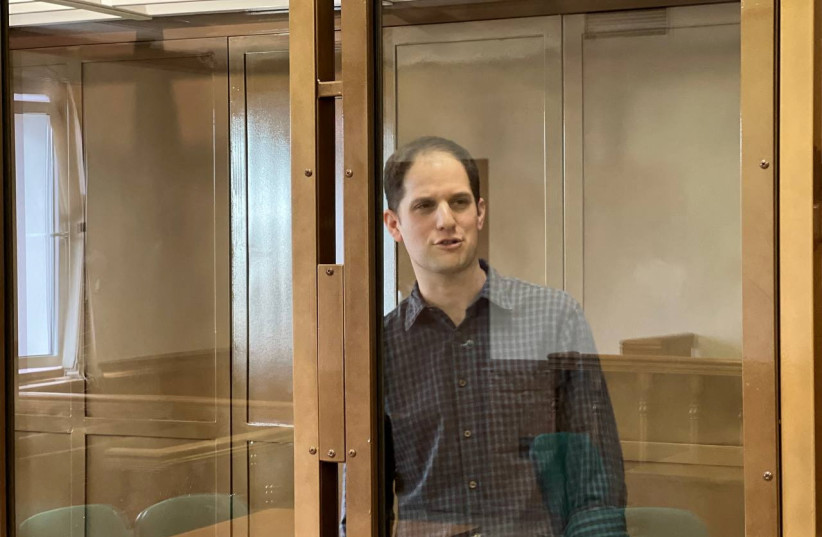Last Friday morning, the world’s leading newspapers and media outlets dedicated their front pages and prime-time TV slots to tributes to Wall Street Journal American reporter Evan Gershkovich, who has spent the past year arbitrarily detained in Russia on spurious espionage charges.
A hashtag #JournalismIsNotACrime was echoed by the White House and beamed all over social media by prominent government and media figures, in the hopes that Evan, and the hundreds of other wrongfully detained reporters worldwide, would be freed.
That day’s news cycle hadn’t even ended before the media world was dealt another devastating blow – this time in the heart of London.
On Friday afternoon, at around 3:15 p.m. local time, prominent Iranian journalist Pouria Zeraati, who hosts the Last Word show on Persian-language network Iran International, was brutally stabbed by two people outside his London home. The attack, in broad daylight, was vicious and shocking.
But surprising, it was not.

Adam Baillie, a spokesperson for Iran International, spoke on Friday about how Iran International was frequently targeted by the Islamic Republic, adding that the studio has been under “heavy threat for the last 18 months... Families [in Iran] have been taken in for questioning. The scale of that has increased dramatically over the last few months and the scale of questioning has been more aggressive: ‘Tell your relatives to stop working for this channel.’”
While London’s counterterrorism police is still investigating the motives of the crime, a terrifying pattern is emerging that we cannot afford to ignore, especially concerning Iran International, which is the most widely watched, non-state-aligned news channel in Iran.
That’s a fact even the head of London’s Metropolitan police’s counter terrorism command, Commander Dominic Murphy, acknowledged in a statement on Friday when he noted that police were “very alive to the threat posed by Iran.” Murphy added: “While we are keeping an open mind, given the occupation of the victim and our publicized concerns about the threat to employees of that organization, the investigation is being led by the counterterorrism command.”
So much for press freedom in the West.
Fars's comment
The day after the attack, Fars News Agency, an Iranian Revolutionary Guards Corps (IRGC)-linked news outlet, was quick to comment on Zeraati’s interview last year with Israel’s Prime Minister Benjamin Netanyahu as perhaps a motive for the assault.
“While even the Zionists are expressing their hatred of Netanyahu, the terrorist Iran International channel has offered its antenna to the prime minister, murderer of children in Gaza,” the Fars report said. “This has incurred the wrath of Internet users.”
Dissident Iranian voices in London – and worldwide – have long been targeted by the IRGC. Earlier this year, UK counterterrrorism forces revealed they had thwarted 15 assassination plots linked to Iran, with the majority of targets being journalists deemed critical of Tehran.
Last December, ITV News revealed an explosive plot by Iranian-linked spies to assassinate two top Iran International news presenters, Fardad Farahzad and Sima Sabet, outside their London studio. The attack, codenamed “The Wedding,” was foiled.
Last year, threats to Iran International reporters in London got so severe that the network was forced to temporarily shift its operations to Washington, DC. But anti-government Iranian voices aren’t safe in the United States, either. In August 2022, a man armed with an AK-47 showed up to the Brooklyn home of Iranian-American activist and journalist Masih Alinejad in an apparent murder attempt. The year before, Alinejad, who has been a vociferous advocate for women’s rights in Iran, was the target of an international kidnapping plot, apparently linked to the Islamic Republic.
To ignore Iranian government-sponsored attacks on activists and journalists in the West is tantamount to acquiescing to anti-democratic Iranian regime forces being granted free rein to wreak havoc in our Western capitals.
Western government should do more to protect these critical voices that dare speak out against the human rights abominations taking place inside Iran and the web of chaos the regime in Tehran has been sowing in the Middle East through its sophisticated proxies.
Evan Gershkovich must be returned to his family. Journalism is never a crime. Neither is truth-seeking. By the same token, the attacks on Pouria and his colleagues at Iran International are a sobering reminder that press freedom is a right we cannot take for granted at home, either.
The author is a British writer based in New York City. The name of his forthcoming book is Unveiled: Inside Iran’s #WomenLifeFreedom Revolt.
